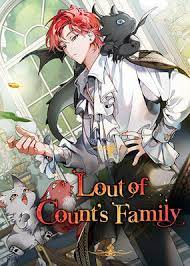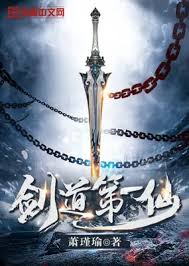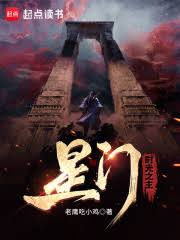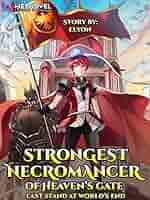The Story in 3 Sentences
Ryan “Quicksave” Romano discovers he can save and reload moments in his life like a video game, turning death into a tool rather than an end.
He plunges into the tangled underworld of New Rome, where metahumans, political schemes, and stolen Mechron tech collide, all while chasing the vanishing trail of his best friend Len.
With every reset, Ryan sharpens his edge, but the cost of perfection isn’t just time—it’s memory, trust, and the slow erosion of who he was before the loops began.
Why It Stands Out
1. The Time-Loop as a Weapon, Not a Curse
Most time-loop stories trap their heroes in repetition like a prison. Here, Ryan doesn’t just escape it—he weaponizes it. He doesn’t beg for answers; he experiments, fails, reloads, and iterates like a rogue scientist in a lab of his own life. This isn’t Groundhog Day with powers. It’s a tactical advantage built on precision, memory, and cold calculation. Fans don’t just admire his power—they envy his control. That shift from victim to strategist redefines the genre’s emotional core. It’s not about longing to break free. It’s about choosing when to stay inside the loop, because that’s where power lives.
2. A Friendship That Anchors the Apocalypse
At the heart of the chaos is Len—not some damsel in distress, not a plot device, but a real, flawed, brilliant friend whose absence haunts every page. Their bond isn’t dramatized with cheap sentimentality. It’s shown in the way Ryan hesitates before a jump, muttering, “Len would’ve known what to say,” or how he risks a timeline just to preserve a single memory of their last conversation. This isn’t a side motivation. It’s the emotional engine. When the world burns and alliances crumble, it’s not duty or destiny that pulls Ryan forward—it’s the quiet, stubborn hope that Len is still out there, waiting to be found.
3. Sarcasm as Armor, Philosophy as Blood
The narrative voice doesn’t just crack jokes—it uses humor like a shield against despair. Ryan’s constant snark isn’t just for flavor; it’s survival. But beneath the quips lies a story wrestling with real questions: If you can redo everything, does anything matter? If you know every betrayal before it happens, can you still trust? The book doesn’t preach. It lets these ideas bleed through action, dialogue, and the slow unraveling of Ryan’s psyche across timelines. Readers don’t just follow a hero—they watch a mind evolve under pressure, and that’s what makes the tone so damn compelling.
Characters That Leave a Mark
There’s Ryan – the sarcastic architect of his own fate, a man who treats death like a minor setback and grief like a puzzle to solve. He doesn’t grow by becoming kinder or wiser in the traditional sense—he grows by learning when not to reset, when to accept pain, and when to stop treating people as variables in his perfect run.
You’ll meet Felix, who walks the razor’s edge between loyalty and survival, torn between Ryan’s cause and the pull of other factions. He’s not a traitor, not a hero—just someone trying to stay alive in a world that rewards neither honesty nor hesitation. His choices feel heavy because they’re never clean, and his friendship with Ryan is one of the few things that doesn’t get reset, no matter how many timelines burn.
Then there’s Psyshock, not a cartoonish villain, but a chilling mirror to Ryan—someone who also manipulates minds and memories, but without the burden of conscience. He doesn’t want to rule or destroy; he wants to prove that free will is an illusion, and Ryan’s loops are just another form of control. Their ideological war isn’t fought with punches alone, but with philosophy, making every confrontation feel like a clash of worldviews.
The Flaws Fans Debate
Some readers get lost in the early chapters, where faction politics and timeline jumps stack up like unreadable code. The story doesn’t hold your hand, and if you’re not paying attention, you might miss why a minor character’s betrayal in Chapter 37 matters in Chapter 92.
The humor, while praised by many, rubs others the wrong way. Ryan’s constant quips can feel forced during serious moments, like emotional whiplash. Some fans call it “defensive writing,” others say it undermines the stakes.
Pacing drags in the middle arc when technical explanations of Mechron tech and psychic networks slow down otherwise explosive sequences. It’s clear the author loves the sci-fi mechanics, but not every reader wants a lecture mid-chase.
And yes, the moral ambiguity frustrates those who want clear heroes and villains. When Felix helps the Augusti to save his sister, or when Ryan lets an ally die to preserve a timeline, it’s not always clear who’s right. That’s the point—but not everyone buys it.
Must-Experience Arcs
Ch. 1-50: Awakening the Loop – Introduction to Ryan’s powers, his friendship with Len, and the first cracks in New Rome’s facade. Establishes the rules of time manipulation and sets up the central mystery.
Ch. 51-100: Fracture War – The Meta-Gang civil war erupts, psychic battles escalate, and Ryan’s alliances begin to splinter. This arc deepens character motivations and introduces the full scope of Psyshock’s influence.
Ch. 101-131+: The Final Run – Climactic confrontations, emotional payoffs, and Ryan’s ultimate choice: to break the loop or embrace it. The philosophical core of the story shines here, with every reset carrying weight.
Killer Quotes
“If you couldn’t die, would you take anything seriously?”
“I’m not here to save the world, just to perfect my run.”
“Villainy is often just a matter of perspective.”
“Sometimes, the hardest battles are the ones you fight inside yourself.”
Cultural Impact
The phrase “quicksave moment” has entered fan lexicon as slang for any do-over in real life, from failed dates to job interviews.
Reddit threads dissect the ethics of Ryan’s choices like academic case studies, with entire subreddits dedicated to timeline mapping.
Fan art often depicts Ryan not in action, but frozen mid-loop—eyes closed, hands on temples—symbolizing the mental toll of his power.
The book’s influence is visible in newer web novels that blend time loops with moral complexity, moving beyond simple “redo until win” tropes.
It’s been translated into seven languages, with particularly strong followings in South Korea and Germany, where readers praise its narrative precision.
Final Verdict
Start Here If You Want:
A protagonist who treats time like a sandbox, not a prison
A story where friendship is the only constant in an ever-resetting world
Dialogue that swings from hilarious to heartbreaking in a single line
Study If You Love:
Narratives that challenge linear storytelling without losing emotional clarity
Characters who evolve not through growth, but through accumulated trauma and choice
Philosophical depth wrapped in superhero action and sci-fi tech
Avoid If You Prefer:
Clear-cut heroes and villains with unshakable morals
Fast, uninterrupted pacing without narrative detours
Stories that explain everything upfront instead of trusting the reader to piece it together





